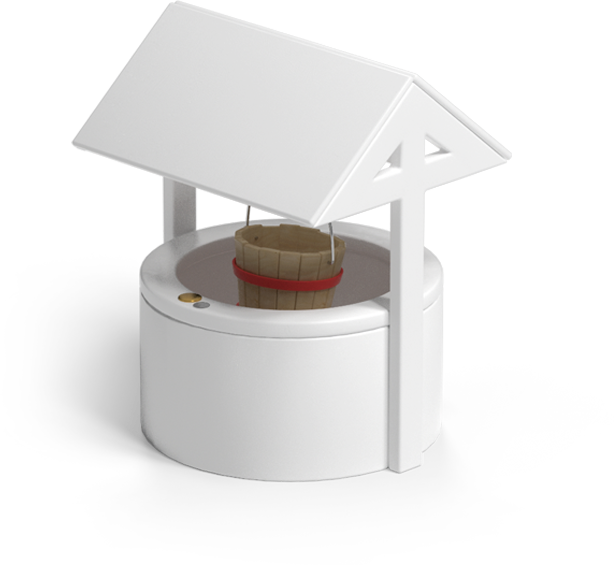When is the Best Time to Sell a House?
Whether you are a property investor or simply someone navigating their way through life at their own pace, buying and selling property is a challenging arena which can have life-changing consequences, both good and bad.
By Jon Howe4/28/21

When is the Best Time to Sell a House?
Whether you are a property investor or simply someone navigating their way through life at their own pace, buying and selling property is a challenging arena which can have life-changing consequences, both good and bad. The average person will sell property maybe three or four times in their life, and how successful you are can really dictate the route your life takes from that point.
However, we can’t always control when we need to sell a property. Undoubtedly there are periods of the year, and even days of the week, when a property will sell fastest, but often circumstances contrive to force us to sell. In such situations there are things we can do to navigate that period and mitigate the market forces which suggest it is not a good time to sell, and ensure we are putting ourselves in the best position to sell the property as quickly as possible.
At other times, we may have the luxury of choosing when to sell a property, so let’s start by looking at historical data and known market trends, and ticking off on the calendar when is a good or bad time of year to sell a property.
What time of year is best to sell a property?
Generally speaking the time of year you choose to put your house on the market will dictate how long it takes to find a buyer. And while this will also influence the kind of price you get to some extent, nobody really wants their property on the market for any length of time more than the very minimum.
How long a property is on sale can be impacted by the local market and the condition of the property of course, but timing is very important in terms of giving you the best possible chance of finding a buyer and an acceptable price.
The key is putting your property up for sale at the time that will see the most buyers, but the least sellers, and the less time your property spends on the market, the better offer you are likely to receive.
It is quite straightforward to carry out an online search on Rightmove or Zoopla on properties similar to yours, to see if there are many properties on the market, and to assess whether there is too much competition so it might be worth delaying your sale, or not much competition so now is the time to strike.
The UK property market is capable of short term blips and seasonal abnormalities, and we shall discuss these in more depth shortly, but historical data does point to some well-established historical seasonal trends.
According to a Rightmove poll, spring is the best time to sell a property, and in particular March. The poll findings suggest it takes on average just 57 days to sell a property in March, whilst the worst time of year to sell is in between mid-October and mid-November, when it can take 79 days on average to sell a property.
These follow the ‘common wisdom’ that winter and summer are generally bad times to sell, whereas spring and autumn are good times. But even within those seasonal timescales, there are caveats which are worth bearing in mind.
- Spring: This is a time when Christmas is a distant memory, gardens are beginning to bloom, properties can look their best and people are feeling more positive and are getting out of the house a bit more. Evenings are becoming lighter so house-hunting is back on the agenda, and putting a property on sale now is giving you the best chance to sell it before the summer market slows down. On the flipside, there may be a lot of sellers entering the market at the same time with the same line of thinking.
- Summer: Early summer can still see an active market, but by July and August people tend to turn their attention to holidays and looking after children whilst they are off school. So it is a difficult time to shift a property. However, the competition might be dominated by properties put on sale in the spring that are struggling to sell, so your property might be pitched as more attractive in this kind of market.
- Autumn: This is when the market picks up again with the weather still decent, and if you get your property on sale early then there is a good chance you can complete the sale before Christmas, which everybody wants. This means people are a little more keen to get things moving quickly and hence, you might get a better price. If you leave it too late into November, then people are beginning to hibernate and thoughts are no longer concentrated on big plans such as moving house.
- Winter: A season to be avoided as people tend to look forward to Christmas and New Year from late October onwards. You might be able to pick up a bargain if you are also buying, but selling a property is notoriously difficult. January and February can still be dominated by bad weather also. That said, people’s mind-set can change very quickly as soon as the calendar ticks over into a new year, so you can get yourself prepared to act quickly and entering the market with your property in late January or early February could bring dividends if other market factors – the economy, local market, weather etc - are in your favour.
Of course it is possible – in fact quite likely – that any property sale will hit unforeseen legal, financial or market delays or a buyer may pull out altogether, leaving your property on the market at a time when a sale is less likely.
This is unfortunate but often unavoidable, so the above information relating to seasonal trends is very much ‘best-case-scenario’ if all things go to plan, and hence is general guidance on when is the best time to enter the property market, if you can control when that is.
Do seasonal market changes effect the type of property you are selling?
Yes they do. Again this is very much general guidance and market quirks may see a sale outside this ‘common wisdom’, but there are times of year where a certain type of property is more likely to sell. For example:
- First-time buyers: They are likely to be looking for smaller properties, maybe a terrace house, a new-build or a flat to get themselves on the property ladder. First-time buyers typically have no family responsibilities and hence they will be active in the market for much of the year. They are not influenced by school holidays and can take their own holidays any time. That said, first-time buyers are traditionally active in January – acting on plans straight after Christmas – and in September – acting on plans straight after a summer holiday.
- Second properties/family-buyers: This market is looking for bigger properties such as three or four bedroom semis or detached properties. They are more likely to be influenced by school holidays, so spring time (after Easter) and Autumn time (after summer holidays) would be the best time to sell this kind of property.
- Elderly/retirement: Here we have a market who are perhaps looking to downsize and are wanting a smaller property, perhaps a bungalow. This market group tends to only house-hunt in the summer months when it is warmer and they know they can complete a move before the bad weather hits. Outside these times, this market will generally slow down as older people prefer to put plans on hold.
Market-led reasons to sell a property
Whilst seasonal factors can dictate the best time to sell a property, this sometimes has to also consider market factors, as we have already alluded to. It is possible to marry the two because some of the market influences we list below can be effective for several months.
So you can delay a sale until it is seasonally appropriate and still get the benefit of the market forces that are suggesting it is a good idea to sell, and get the best price possible.
Property value has increased
Different local markets perform according to different factors, and it may be that your property is in a location which is up and coming and becoming trendier. This can be seen on a national scale with the big ‘northern powerhouse’ cities of Manchester, Liverpool, Leeds and Newcastle, where properties can be bought much cheaper than in the south, but thriving job markets and cultural attractions are making them much more attractive.
On a more macro level, areas within towns and cities can become more desirable and therefore you need to act quickly and sell whilst the market is on the crest of a wave. This can lock-in profits from which you could benefit over a long term period.
Development plans
This carries on from the previous point, in that you can search for local planning applications which might make a location either more desirable or equally, not as desirable.
Cultural factors can make an area more attractive, as can developments such as new roads and commuter opportunities, new schools, tourist attractions, shops and offices. On the other hand, some developments can cause an area to decrease in value, such as flat developments, shopping centres, new motorways, incinerators, noisy industrial developments or busy leisure facilities.
Even previous developments closing or being demolished can cause an area to quickly stagnate and degenerate. So selling quickly to avoid this or delaying a move may be your only options. But the key is making yourself aware of what is happening in your locality well in advance, so you have time to act.
Financial factors
There are often changes to influencing property factors such as stamp duty, interest rates or mortgage rates, which mean you should act quickly to sell or delay a sale until they come into effect.
Property lull
Sometimes the property market sees a lull in houses being built which triggers a build-up in demand and possibly makes your property more desirable.
This lull could be caused by economic forces or less developers building, and often results in the Government stepping in and introducing measures to kickstart the market.
This happened in 2020 with stamp duty and rental holidays, and in the recent past with various ‘Help to Buy’ schemes. So if you can see this happening, now would be a good time to put your property up for sale, whilst there is a ‘sellers’ market’.
Unforeseen market blips
You need no reminders that events like COVID-19 can cause unseasonal market fluctuations. In March 2020 the property market was gearing up for its traditional busiest period, and yet within days every estate agents had to shut and only a minimal property market remained.
Furthermore, there was a mini-boom in August when lockdown restrictions were lifted at a time when the market is usually dead. We have also seen Brexit uncertainty influence the market in recent years, and the 2008 banking crisis also brought a dramatic change in normal market behaviours.
So it is always worth keeping an eye on the news and reading the advice of property experts to see where the market is going, and basing your decisions around that.
Personal reasons to sell a property
Of course we don’t always have the luxury of being able to choose when we sell a property, as personal circumstances can intervene and force us to enter the market. On such occasions, again, we might be able to delay things to strike the right time seasonally or in terms of the market generally, but that might not always be the case.
Moving jobs
This can happen at short notice, and sometimes it follows that your financial circumstances are quite favourable, so you may be able to rent a home near your new place of work and delay selling the property until it makes financial sense to do so. That might not be possible though, so you may have to sell quickly and live with the consequences.
Children’s schooling
Many people move home to be nearer a secondary school with a good or better reputation, for the benefit of their children. This has to be timed right in order to get established in the area and be part of the catchment criteria when school places are allocated. This can also be a factor when a parent is changing jobs, so the timing of doing this may not always make sense financially, and therefore you have to balance these factors carefully.
Upsizing a home
You may need a bigger property because you are expecting a baby and need an extra room, your family is growing older so children sharing a room now need one each, or your circumstances dictate you need a home office or another spare bedroom. You may have to look after an elderly or sick relative on a long-term basis. In such situations we have to think on our feet and sell quickly.
Downsizing a home
Retirement usually sees people considering downsizing to a smaller home, perhaps a bungalow, which enables them to live independently but safely in old age. If done well this can net a nice little nest egg for your retirement.
Downsizing may also be the result of a family breakdown or a divorce, where you no longer need a family home and can live in a smaller property. In such situations, you should bear in mind that any profit from the sale may not be 100% yours.
New relationship
It is common for two people to meet and build a relationship whilst each having their own properties. When a certain level of commitment is reached, the two parties can either sell both properties and move into a new one, or sell one property and move into the other.
In these circumstances, you could be in a very favourable situation where you can wait for the right time to sell, according to the seasonal forces and the market forces. You could even rent out the property to make some short term income in the meantime.
How to make sure you get the timing right when selling a property
Timing is one of four common factors that you need to consider when you are looking at the best time to sell a property. The location of the property and the type of property are two others, but supply and demand is the fourth factor, and one that is directly linked to timing.
Certainly if you follow the seasonal guidance listed above, you have everything in your favour to be able to sell the property within good time and get the best possible price, but as we have already discussed, you don’t always have that option.
If this is the case then you need to ensure you are giving yourself the best possible chance of selling the property, and that is by pricing the property competitively and therefore opening it up to as much demand as possible.
In this respect, there are still sufficient factors that you can control: an acceptable asking price, the condition and appearance of the property and pitching the property to the right demographic market.
As well as the possibility of you being forced into a situation where you have to move, regardless of what time of year it is, there is also the chance that problems in the selling process puts the property back on the market at a time you wouldn’t necessarily choose. In this instance, those factors that you can control can still work in your favour.
Another factor which could be to your advantage if you are forced to sell your property out of season, is that you may find there are fewer competitors selling similar properties. Because most sellers are strategic-thinking, ie. sticking to the more traditional sales dates, this potentially opens you up to more demand than normal and hence, a quicker sale.
Ask any estate agent and they will always say that ‘now’ is a great time to sell your property. But hopefully we have outlined here enough reasons to pick and choose your time to sell, or have highlighted when it might not be possible to do so, and therefore where extra attention is required. And ultimately, you are always working to give yourself the best possible chance to sell the property, irrespective of what month it is.
Take a look at our other articles




